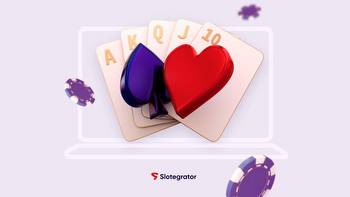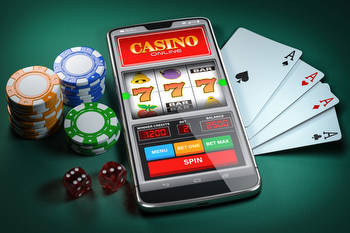7 Features German Online Casinos Need
Seven features for successful gambling apps
The Interstate Treaty on Gambling (GlüSTV) legalized online gambling in all German states as of 1st July 2021. The new legislation sets the requirements for virtual games of chance such as betting, casino games and slot machines. Its main purposes are to ensure the protection of minors, protect players from fraud and combat gambling addiction.
Before gamblng operators can launch online casino experiences on the German market, they need an app development strategy. Here are seven features for successful online casinos, as well as advice on how to make sure they are implemented in compliance with the new regulations:
1. An intuitive user interface
If a user needs to click through multiple menus before reaching their destination, then the app’s user interface (UI) is not intuitive enough. According to the YouGov survey, 24% of respondents uninstall apps that are difficult to use. To avoid losing customers, developers should make sure that app UIs are uncluttered and easy to navigate. Most importantly, this means making current account balances, available games and core tasks such as topping up or claiming credit easily accessible.
Ensuring customers are able to locate and access key financial information is also a requirement under the GlüSTV. In accordance with the new regulations, players must be able to view their account balance, an overview of all charges and their game history at any time. The same applies to the rules of the game, which must be both easily retrievable and simple to understand. Describing the game rules as logically as possible is also an important best practice, as customers that don’t understand how to play are not likely to risk attempting the game and losing money.
2. Multiple payment options and instant payouts
Online casino apps should accept a selection of payment methods. At a minimum, customers in Germany should be able to pay and receive money by PayPal, credit card and online bank transfer. On winning a game, customers should be paid their winnings immediately to avoid frustration or anxiety that they have been cheated.
Even more importantly, customers actually need to be able to pay and receive money. This may sound obvious, but the most unassuming functional errors are often the ones to cause the most problems and revenue losses. In order to avoid losing willing customers to faulty payment and payout processes, it is essential that developers test payments across diverse devices and operating systems.
3. Comprehensive security
For casino apps that give and receive real money (as opposed to free-to-play games), customers want assurances that their deposits will be safe and their winnings genuine. They also want to know that efforts have been made to keep their personal information safe, especially their payment details.
Security needs to be built into the games themselves to ensure that customers do not lose money unwittingly. In order to protect players, the GlüSTV stipulates that games or individual rounds may not begin until the user has actively confirmed their participation. In practice, this may mean ‘yes’/’no’ pop up notifications that ask users whether they are certain they want to start a game.
4. Loyalty programmes
Customer retention is a key challenge in the gambling industry. According to a Feefo study, 96% of players switch betting providers every year, with more than one-fifth of users switching as many as every three to five months.
Bonus offers — such as free spins on a virtual machine — both incentivise users to stick with a certain app and enhance the gaming experience. However, gambling operators must not target bonus campaigns at users that have been blacklisted to protect them from addiction. This is a requirement under the GlüSTV.
5. 3D experiences
Just as visitors to physical casinos expect an appealing, modern interior and clean gaming equipment, online players expect tidy, attractive designs. In order to create an experience that best conveys the feeling of a real casino, developers should focus on 3D design elements. As these often involve animations, performance testing is crucial, especially on older device generations.
Outside of Germany, 3D and virtual or augmented reality (VR/AR) experiences have been employed to replicate the figure of the dealer in games such as roulette, blackjack and baccarat. However, games involving a dealer are banned under the terms of the GlüSTV.
6. Exceptional customer service
Reputable online casinos should be devoid of bugs. In the event of an issue, however, customers need to be able to speak to a customer service representative immediately, especially if they believe that they have lost money due to a fault in the system. Besides an FAQ page, online casinos should offer 24/7 customer support via phone, email and online forms. The best online casinos will also offer customer service chatbots.
7. Multilingual availability
The best online casino apps offer games in different languages. While English and German are the standard, having more languages available will only increase an app’s reach. Nevertheless, gambling operators should beware of poor translations, particularly grammar inaccuracies and unidiomatic language, which suggest unprofessionalism. Only by testing with native speakers can gambling operators guarantee a thorough and effective localisation process.
Extensive testing is key
The nationwide legalization of online gambling in Germany will provide a boost for the gambling industry as more operators enter the market. In order to achieve the best possible user experience and comply with legal requirements, gambling operators should take heed of the advice above. Once an app has all the requisite features, it needs to be tested with real users if it is to reach its full potential.
Across payments, geofencing and compliance, gambling operators have many moving parts to get right. Learn more in our Ebook: "3 Keys to Customer Loyalty for Online Betting and Casino Operators."


































